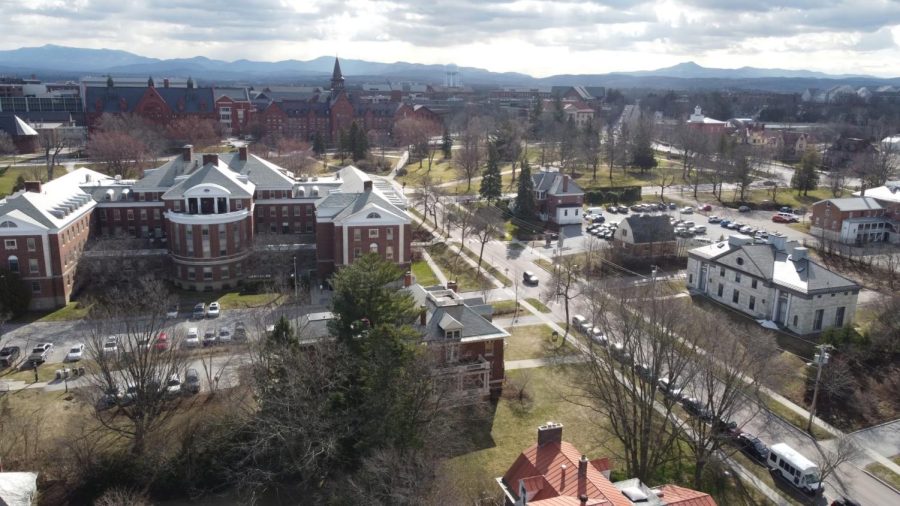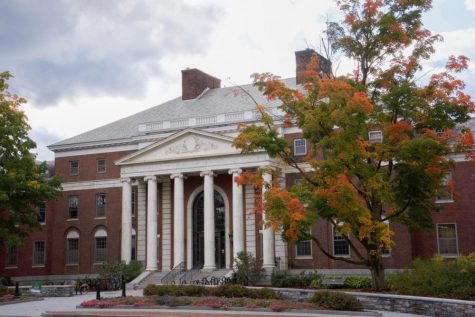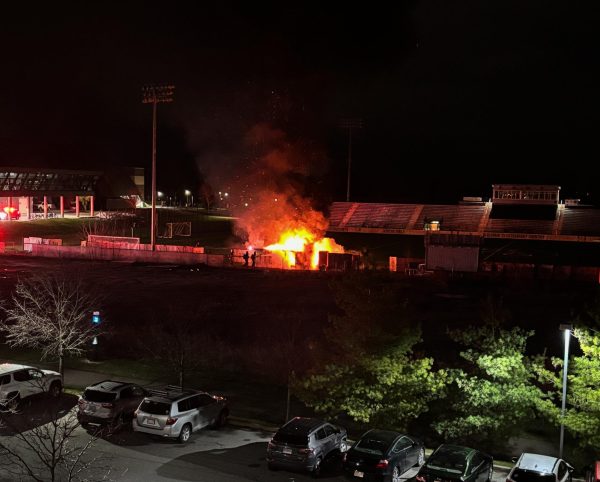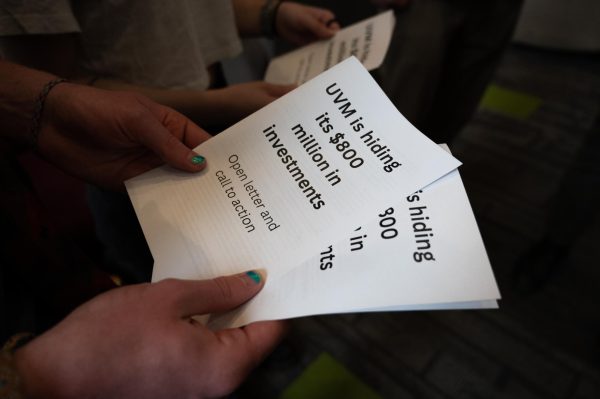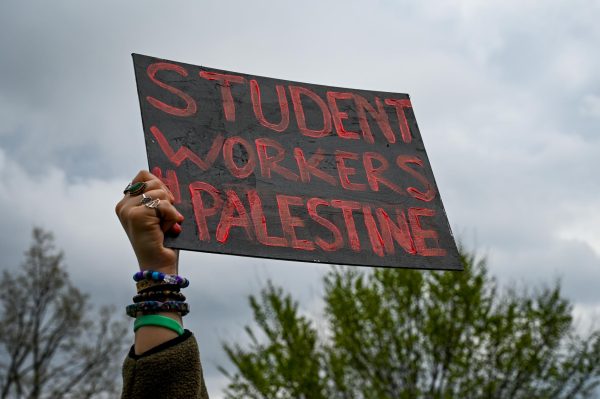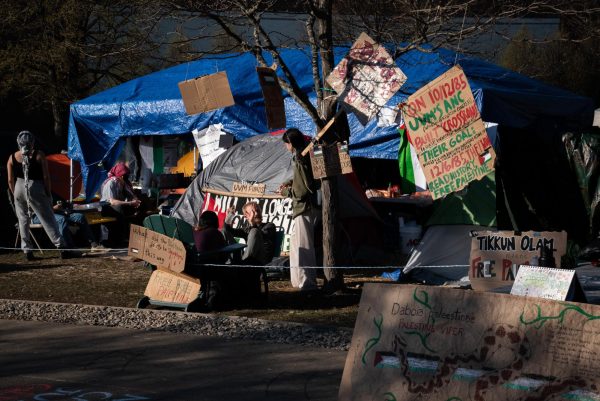Feds conclude investigation into UVM’s handling of antisemitism allegations
The Waterman Building (left) and UVM Hillel’s building (right).
UVM has agreed to a voluntary resolution of an antisemitism investigation that has been ongoin since September 2022, according to an April 3 letter to the UVM community from UVM President Suresh Garimella.
The complaint alleged discrimination by a teaching assistant and two student organizations against Zionists, as well as vandalism of the UVM Hillel building, according to a Sept. 14, 2022 Vermont Cynic article.
The October 2021 complaint alleged that UVM had been a hostile environment for years, but intensified after these incidents, according to a Sept. 13, 2022 press release by the Louis D. Brandeis Center For Human Rights Under Law and Jewish on Campus, which filed the complaint.
Over 150 students expressed to UVM Hillel feelings of isolation and a lack of safety, according to the article.
Junior Maya Sobel, a student leader for UVM Hillel expressed that she, along with many other UVM students, was unhappy with how the University was handling antisemitic incidents.
“It was just not being handled appropriately here,” Sobel said.
Soon after, a group of students from UVM Hillel contacted the Brandeis Center because they were unhappy with how the University was handling the cases, Sobel said.
Following this, the U.S. Department of Education’s Office for Civil Rights conducted an eight-month-long investigation regarding antisemitism on UVM’s campus, which was resolved April 3.
In an April 3 letter to Garimella, the OCR stated that the University failed to properly address the multiple instances of allegations of antisemitic discrimination.
“OCR has concerns that the University’s failure to investigate allegations of antisemitic harassment may reflect University officials, acting within the scope of their official duties, treating individuals differently on the basis of national origin […] without a legitimate, nondiscriminatory reason,” the letter stated.
The OCR was also concerned about Garimella’s initial public statement on the investigation, believing it may have discouraged students from reporting their experiences, according to the letter.
The OCR’s letter also described the changes UVM will be making to align with the OCR’s standards regarding the University’s response to discrimination.
The letter directly outlined the changes UVM will be making. This includes reviewing and revising policies to ensure the University’s response to discrimination is in line with Title VI and providing more in-depth training for University students and staff in regards to Title VI, the letter stated.
UVM will be required to clarify the roles of the Office of Affirmative Action and Equal Opportunity and the Bias Response Team in responses to alleged discrimination, the OCR stated.
The University is required to clarify that their anti-discrimination policies extend to antisemitism, and provide parties with reasoning if they decide not to investigate a complaint, according to a resolution agreement signed April 3 by a University representative.
The OCR will also be monitoring these changes as they are put into action, according to the letter.
The fact that the University will not only be developing new protocols but also monitoring the implementation of them in the future will hopefully be effective, said Rachel Lerman, the head chair of the Brandeis Center.
In Garimella’s April 3 letter, he stated that the University would not tolerate antisemitism and that the resolution represents a step forward for UVM’s relations with the community.
“With today’s resolution agreement, UVM is redoubling its efforts to ensure this commitment is as tangible to the campus community as possible moving forward,” Garimella stated.
According to an April 3 letter from the Office of the Provost, more measures being taken by the University to better handle religious discrimination include updating anti-harassment policies and using “all tools at its disposal” to address discrimination.
“[The resolution] reflects numerous conversations we have had with our campus Jewish community and important local and national voices on the consequential and complex issue of antisemitism,” Garimella stated.
Sobel voiced her support for the resolution and said she sees a change in the community already.
“I have met with University officials and administration about [an incident of antisemitism] that has happened very recently and they have handled it with grace,” Sobel said, “Which is such a huge change from prior to the OCR investigation.”
Sobel is optimistic about how the University will handle incidents of antisemitism in the future.
“I know for a fact that it already has changed within the first week,” Sobel said.
Matt Vogel, executive director of UVM Hillel, agrees with Sobel that the resolution is an important step in properly addressing antisemitism on University campus.
“The resolution of the student complaints with tangible and accountable action steps represent a positive step forward for all students on campus,” Vogel said.
Vogel is optimistic that this resolution will have a large impact on students who wish to freely express their Jewish identity, he said.
“Jewish life at UVM is thriving and only getting better because of our amazing students,” Vogel said. “It’s my hope that no student need have their UVM experience defined by antisemitism in the future.”


